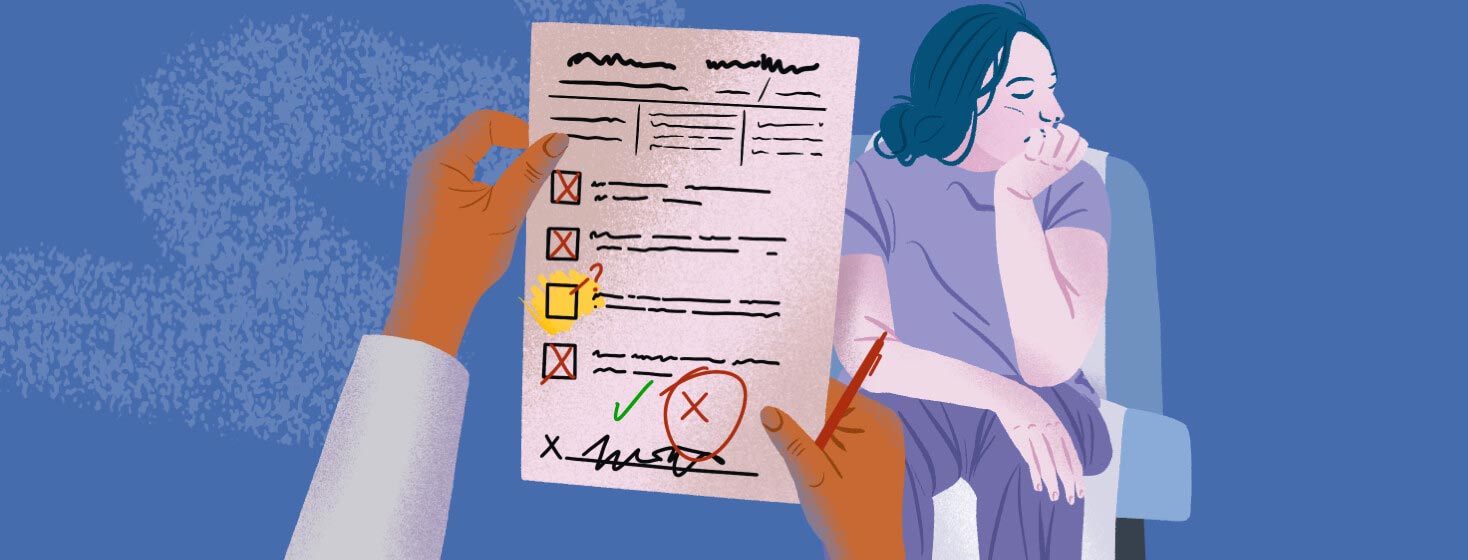Why People with Bipolar Disorder Get Misdiagnosed
When I saw a psychiatrist for the first time, I was incorrectly diagnosed. I thought I had bipolar disorder – the psychiatrist disagreed. He said I had unipolar depression (depression not stemming from bipolar disorder).
Misdiagnosis of bipolar disorder is, unfortunately, common. And, as happened with me, misdiagnosis tends to happen when a person seeks help for a depression, and they are diagnosed with unipolar depression rather than bipolar disorder. Some of this misdiagnosis is likely unavoidable. Some of it is not.
When is bipolar disorder more easily diagnosed?
Mania is an extreme mood state which, by definition, lasts at least 7 days and impairs one or is life-threatening. It's because of this that mania tends to be easy to recognize for a trained professional.1
Previous depressions tend to stand out to a patient, as they cause significant impairment and distress and thus are easy to inquire about. If a person has experienced both mania and depression, that's when a diagnosis of bipolar disorder is commonly made. (Note that additional symptoms such as the presence of psychosis [delusions or hallucinations] can complicate things.)1
Bipolar disorder misdiagnosis numbers
However, the risk of misdiagnosis in bipolar disorder is notable. The numbers on bipolar disorder misdiagnosis are disheartening:2
- One study found that 69 percent of patients with bipolar disorder are misdiagnosed initially, and more than one-third remained misdiagnosed for 10 years or more.
- Two additional studies found that there was a mean time of between 5.7 and 7.5 years from the initial misdiagnosis to the correct diagnosis.
These types of findings have been found over time and around the world.
When is bipolar more easily misdiagnosed?
When people seek help during a depression, misdiagnosis is more common.3
This happens more frequently when the person has bipolar disorder type II, as bipolar II consists of hypomania and depression and not mania and depression. Hypomania is harder to catch because its symptoms aren't as severe, and thus, don't tend to cause the same kinds of problems.4
When a person seeks help in a depression, they may be diagnosed for a number of reasons:
- The person may not yet have experienced a manic or hypomanic episode. In this case, it's difficult for the doctor to know the patient has bipolar disorder and not unipolar depression, and they are misdiagnosed.
- The person may have experienced hypomania but consider it normal for them. For example, if a person experiences hypomania simply as a pleasurable mood with a lack of self-control and it hasn't previously caused problems, they may not recognize it as part of an illness. When the doctor inquires about possible previous symptoms, the person may skip over that experience altogether. The doctor then incorrectly assumes that hypomania is not present, and the person is misdiagnosed.
- The doctor may not properly inquire about past experiences, so those experiences of mania or hypomania are not considered, and the person is misdiagnosed.
There are other reasons for misdiagnosis, too, such as the overlapping of symptoms between diagnoses.
What if you feel like you've been misdiagnosed?
I didn't know what to do when I felt I was misdiagnosed. I was so depressed that I was spending all my energy, all my everything, just staying alive. There was nothing left in me to use to stand up to a person in a position of authority. I wish I'd have known the following tips.
If you feel like you may have been misdiagnosed, the best thing you can do is to have an open and honest conversation with your doctor.
- Ask what, specifically, led to your current diagnosis.
- If you've had symptoms that you feel don’t fit that diagnosis, ask your doctor what may be causing those specific symptoms.
- If you feel a different diagnosis fits you better, ask your doctor if they had considered that diagnosis and why it wasn't the one chosen.
What you’re trying to do is to fully understand your doctor's decision-making process and add any additional information they may have missed. It's your brain and your health, and you have a right to be fully informed.
Avoiding self-diagnosis
Finally, there are complexities to everything, and you should never self-diagnose. You are unique, and there may be complications to your situation that are not addressed in this article.
